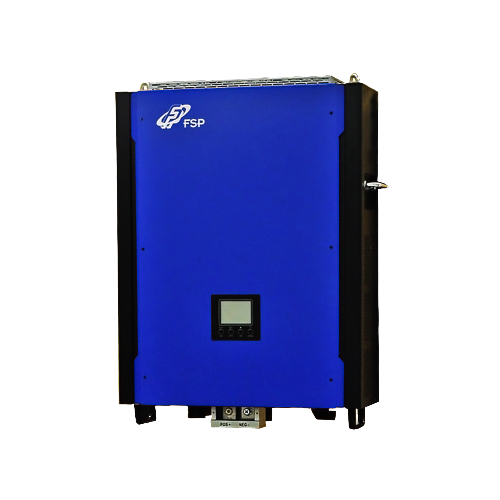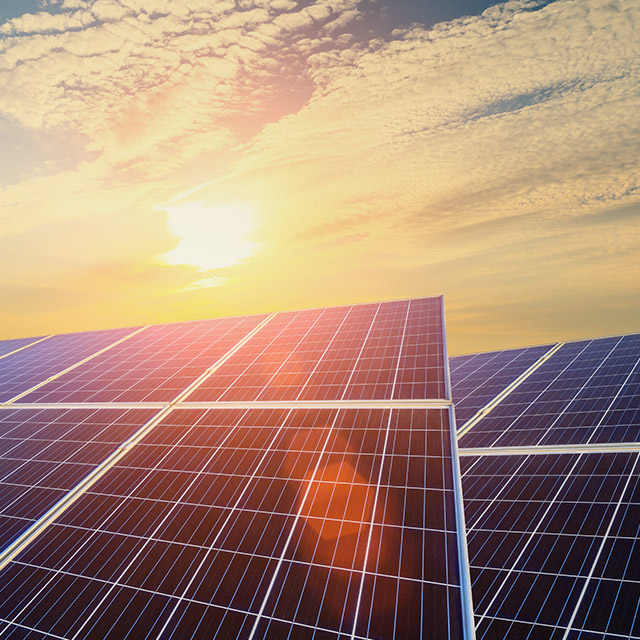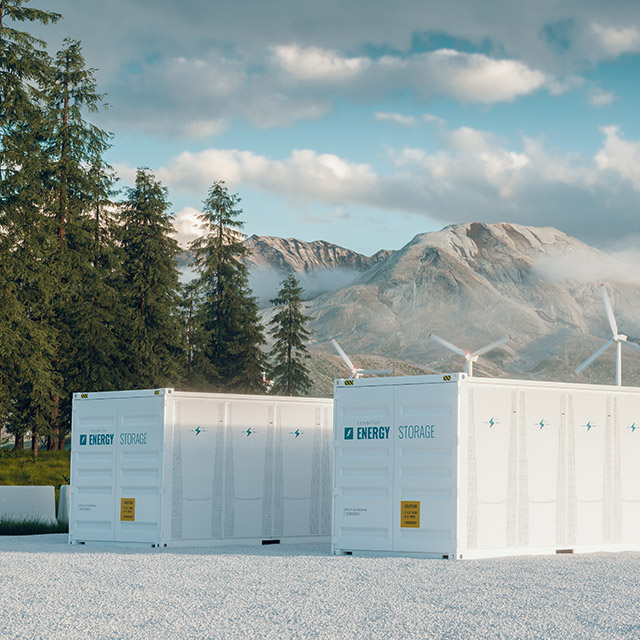Solar Hybrid Inverter Guide: Functions, Types & Off-Grid Benefits
Overviews
- What is a hybrid inverter? How does it work?
- What are the different functions of a hybrid solar inverter?
- Types of hybrid inverters
- Can a hybrid inverter help me go off-grid?
- FSP’s hybrid inverter recommendations
- Key Takeaways
New solar technology has been developed in the form of hybrid inverters. These inverters can combine the benefits of regular solar inverters with the flexibility of battery inverters into one piece of equipment. A hybrid inverter is a new option for homeowners who want to install a solar power system that can be expanded in the future to include other parts, such as a battery storage system.
Here, we look at what a hybrid inverter is and the different types and functions it has.
What is a hybrid inverter? How does it work?
A hybrid solar inverter is a piece of equipment that is created by combining a solar inverter and a battery inverter into a single unit. This allows the hybrid solar inverter to intelligently handle power coming from your solar panels, solar batteries, and the utility grid all at the same time.
The direct current (DC) electricity generated by your photovoltaic (PV) system is changed into the alternating current (AC) electricity that is used to power your home. This type of solar grid-tie inverter also makes it possible to send any excess electricity generated to the utility grid.
The process of converting the DC electricity that is stored in your solar battery storage into AC electricity that can be used by your home is managed by a battery inverter.
A solar hybrid grid-tie inverter makes the work of a traditional solar inverter easier and better by putting all of its functions into a single device. These features include grid connection and solar panel charging. Even better, because the amount of solar power that is available can vary depending on the weather and the time of year, a hybrid inverter can, if necessary, draw power from the electricity grid to charge your battery storage system. This is a significant benefit because the amount of solar power that is available can change.
What are the different functions of a hybrid solar inverter?
An inverter's primary function is to change the direct current (DC) that is fed into it from your solar panels into alternating current (AC), which your house is able to make use of. This method is taken to a whole new level when a hybrid solar inverter is used, which brings with it a number of benefits, including the following:
DC-to-AC Power Conversion in Both Directions Solar batteries are often charged by direct current (DC) electricity that comes directly from solar panels or by DC electricity that has been converted from alternating current (AC) electricity using a solar inverter (AC coupled). The stored direct current electricity must then be converted by an inverter into alternating current electricity before the power may be released.
When it is a hybrid model, one piece of equipment can do the job of both the inverter and the battery. The hybrid grid-tie inverter can use AC electricity to power your home. It can also take AC electricity from the grid and turn it into DC electricity that can be stored in batteries for later use.
Regulation of the Power Supply Solar panels can produce different amounts of power depending on the time of day and the weather. This is because the amount of sunlight changes throughout the day. A hybrid inverter controls and regulates this electricity to make sure that the system as a whole works within the parameters that were set.
Power Monitoring Solar hybrid grid-tied inverters can be fitted with solar power monitoring software to measure and keep an eye on your photovoltaic system. This can be done through the display screen of the inverter or through an app on a connected smartphone. This can assist in locating any faults in the system.
Hybrid inverters with Maximum Power Point Trackers (MPPT) measure how much electricity your solar panels make and compare it to the battery's voltage. This is done to get the most power out of the system. This makes it possible for the most power to be made and for DC electricity to be turned into the voltage that gives the battery the most charge. Your MPPT makes sure that your solar power system will work well no matter what, such as how bright the sun is, how hot the solar panels are, or how much electricity is being used.
Types of hybrid inverters
Before making a decision about whether or not to add a hybrid inverter to your electrical system, you should know about the three main kinds.
Inverter/Charger Hybrid
The type of hybrid inverter that is used most often in off-grid power applications is an inverter/charger hybrid. This piece of equipment has all the features of a regular battery charger and inverter, as well as the benefits of hybrid inverters that we've already talked about.
With this kind of inverter, the electrical system can get power from the shore connection until the setpoint limit is reached. At this time, it will begin adding power from the battery to the mix in in order to prevent the shore supply from becoming overloaded. As soon as the extra load goes down, it will start charging the batteries again using the power it has in whatever way is best.
Inverter/Charger/Solar Charge Integrated
One type of hybrid inverter that is not very common is one that has MPPT solar chargers built in. These models have all the benefits of a regular hybrid unit, plus they have solar power built in. This makes them a great choice for anyone who wants to save space. The disadvantage of using them is that if one component fails for any reason, the whole system can become inoperable as a result.
Grid-Tie Hybrid
As was just said, these machines can do every normal thing a hybrid inverter can do. On the other hand, these are able to send power back into the grid, which is practically the same as selling power back to the power provider. Because of this, some of the costs that are normally incurred when pulling power from your home or another source can be avoided.
Grid-tie systems are subject to stringent regulations, and in order to put one into operation, you will need permission from the nearby utility.
Can a hybrid inverter help me go off-grid?
If you want to live partially or completely off the grid, you should seriously think about buying a hybrid inverter. This is because they are able to combine the electricity from a number of different sources into a single stream that can be utilized.
Imagine the possibility of creating an electrical system that is both more powerful and more capable by combining the power of a generator or a solar power system with the charge of your batteries. Because of this, living off the grid is much more bearable over the long run, since you are able to enjoy many more of the conveniences that are standard in a conventional house.
FSP’s hybrid inverter recommendations
At FSP, we believe that it is important for customers to do their research into significant purchases like this. We spend time looking into the best products on the market and only recommend ones we would use ourselves. Our recommendation for the best hybrid inverter is the PowerManager Hybrid 10kW. It has the following features:

- Programmable multiple operation modes: Grid-tie, off-grid and grid-tie with backup
- Pure sinewave and programmable priority for Battery or Grid
- Self-consumption and Feed-in to the grid
- Peak load shifting operation
- Alike UPS application
- User-adjustable charging current and voltage
- Monitoring software for real-time status display and control
- Parallel operation of up to 6 units
For more information on the PowerManager Hybrid 10kW, visit our website and click on ‘inquiry’.
Key Takeaways
An initial investment in a hybrid inverter may be more expensive, but it may be worthwhile in the long run because it will provide you with a solar inverter that makes the most of the operations of your PV system. With the help of a hybrid inverter, you can reduce how much you need to use the grid, lower your carbon footprint, use more advanced monitoring tools, and make more power.
For more information on hybrid inverters, get in touch with us today and speak to a member of our team.
| FSP Smart Microgrids Microsite |
Related Articles
About FSP
FSP Group is one of the global leading power supply manufacturer. Since 1993, FSP Group has followed the management conception “service, profession, and innovation” to fulfill its responsibilities as a green energy resolution supplier.





